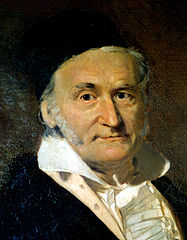We would like to add all the numbers from 1 to N, where N could be a big number. The obvious way to do this is to simply add them up, one by one.

We can, however, also follow in the footsteps of the young Johann Carl Friedrich Gauss, a now-revered 18th century mathematician. As the story goes, he was punished by his elementaryschool teacher to do the same exercise: add all the numbers from 1 to 100. The teacher, J. G. Büttner, assumed that the problem would take Gauss a long time to do, yet Gauss finished the problem in a matter of seconds. He realized that, adding 1 + 2 + 3 + ... + 100 was the same as adding (1 + 100) + (2 + 99) + (3 + 98) + ... + (50 + 51). Each pair summed up to 101, and there were 50 of these pairs, so he quickly deduced that the answer was 101 × 50 = 5050. Presumably, teacher Büttner wasn't pleased.
In general, if you wanted to add the numbers from 1 to N, the answer would be
$$(N + 1) \times (N ÷ 2)$$
because there are (N ÷ 2) pairs, each of which add up to (N + 1).
Imagine that you are playing a game against young Gauss to see who could add numbers from 1 to N faster: he does it his way, while you manually add them one by one. You can either win, lose, or tie in this game. What do you think would happen if N is 2? If N is 10? If N is 100? If N is one million?